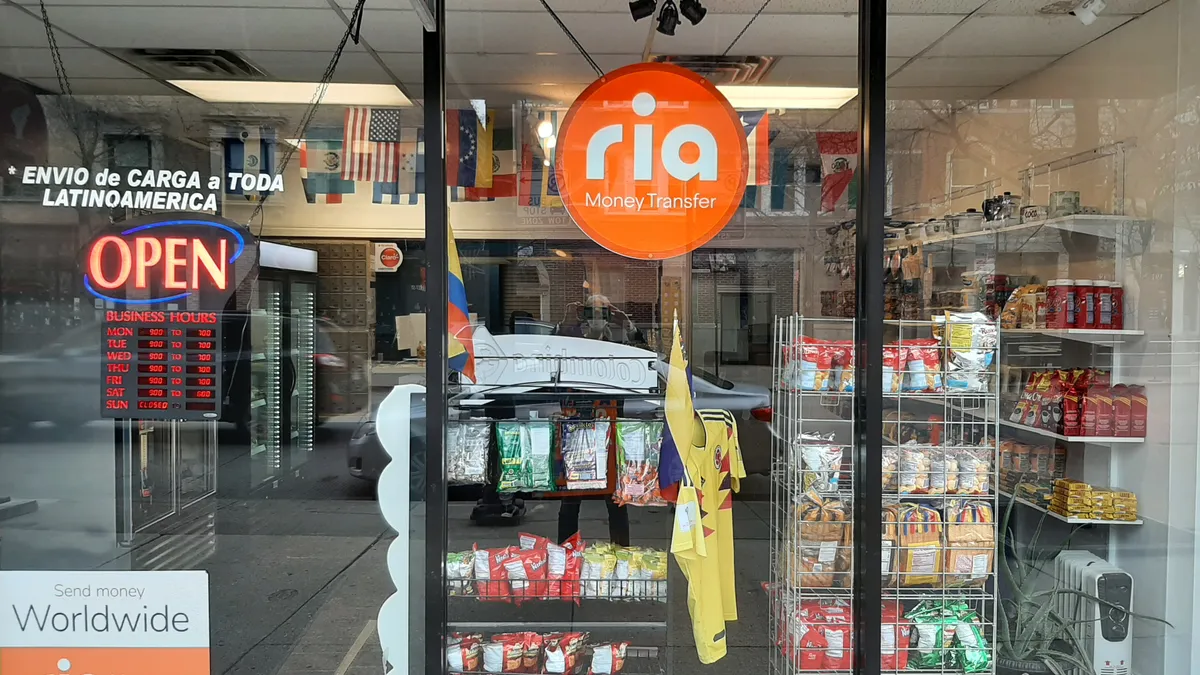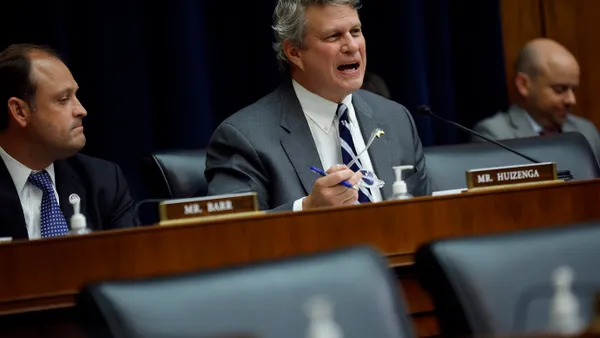Dive Brief:
- The real-time payments revolution will improve cross-border transactions, but challenges remain, according to a report this week from the U.S. Faster Payments Council, an organization promoting instant payments.
- Regulatory compliance, security, foreign exchange risk and high costs are among the continuing complications that face the new generation of fintech companies seeking to advance cross-border payments, the report said.
- “This document is intended to look back at the history of correspondent banking and look forward to some of the considerations, challenges, and changes financial institutions are facing in the next 12 to 24 months in their faster payments implementations,” the organization said in the document.
Dive Insight:
Some of the same issues that have stymied new fintech and digital efforts to send payments across borders have also hampered international transactions through the current correspondent bank system.
Those difficulties include navigating multiple regulatory jurisdictions and creating secure international infrastructures that protect privacy, the Wednesday report explained. The expansion of new and old approaches has also been held back by a lack of transparency and interoperability, it noted.
Still, the environment in which payments move is evolving quickly, with the advent of real-time payments, including the launch of the Federal Reserve’s FedNow system last year, adding support for cross-border exchange. Those instant payment advances, along with blockchain’s distributed ledger technology and new application programming interfaces, will drive cross-border options, the report said.
Even though FedNow and its real-time U.S. rival, the RTP network, don’t currently offer international payments, they will eventually, perhaps within two years, said the council’s CEO, Reed Luhtanen. The push forward largely comes from expanding global trade, he said in a LinkedIn message.
“The ability to transact across borders is an important aspect of today’s economy,” Luhtanen said, explaining the report’s role in the discussion. “Identifying best practices to processing instant payments transactions across borders is a critical aspect of driving the usage and adoption of instant payments.”
The FPC Cross-Border Payments Work Group that produced the report was sponsored by Purchase, New York, card network company Mastercard.
In a podcast tied to the report, Mastercard Vice President Jonathan Holland said the write-up sets the stage in terms of history and the outlook for what’s coming in the cross-border arena. Holland oversees the card network’s digital partnerships, according to his LinkedIn profile.
“You really, absolutely need to take the learnings of what you do in your domestic space to think about what will come in the future for the cross-border space,” Holland said on the podcast.











